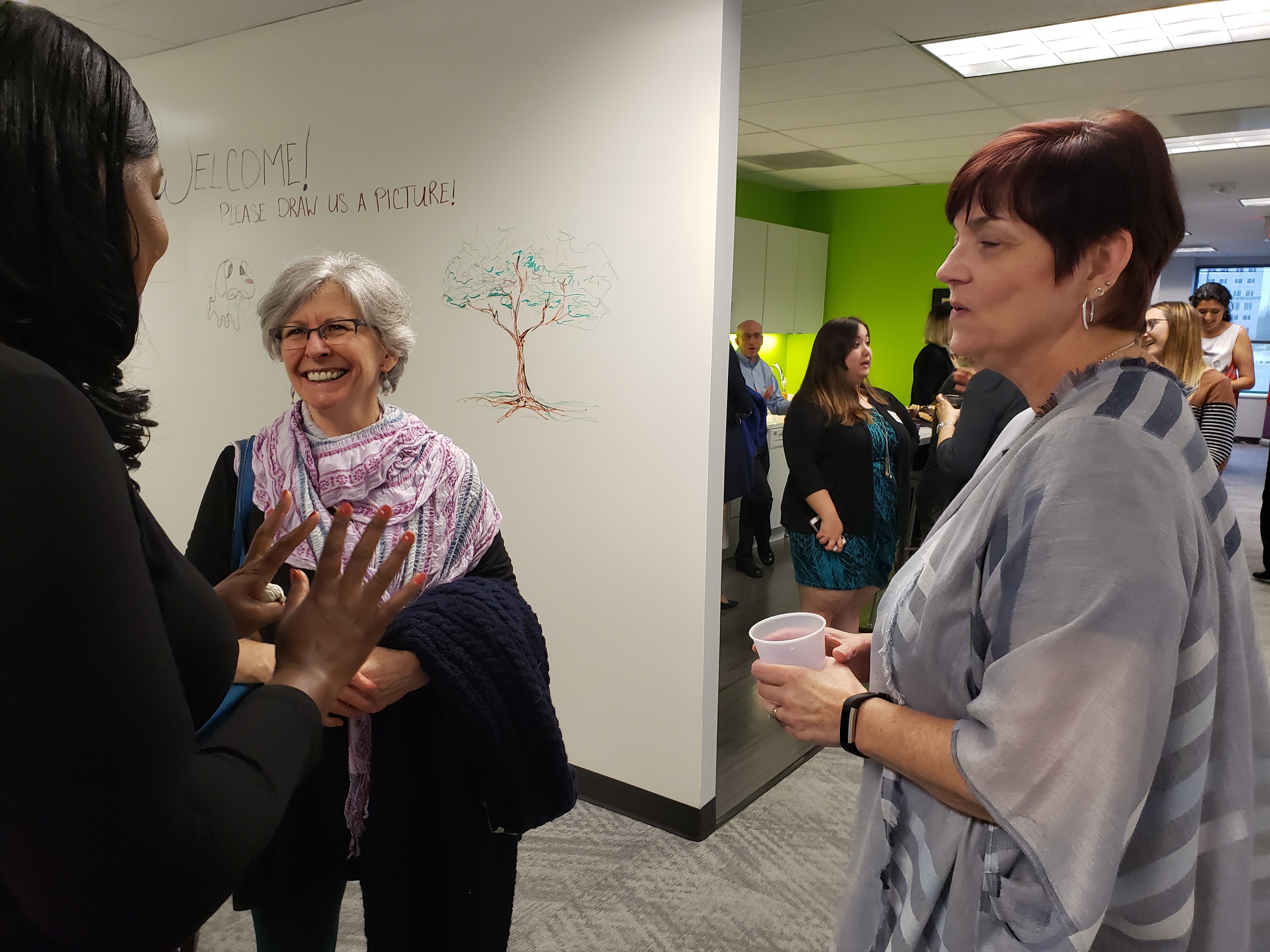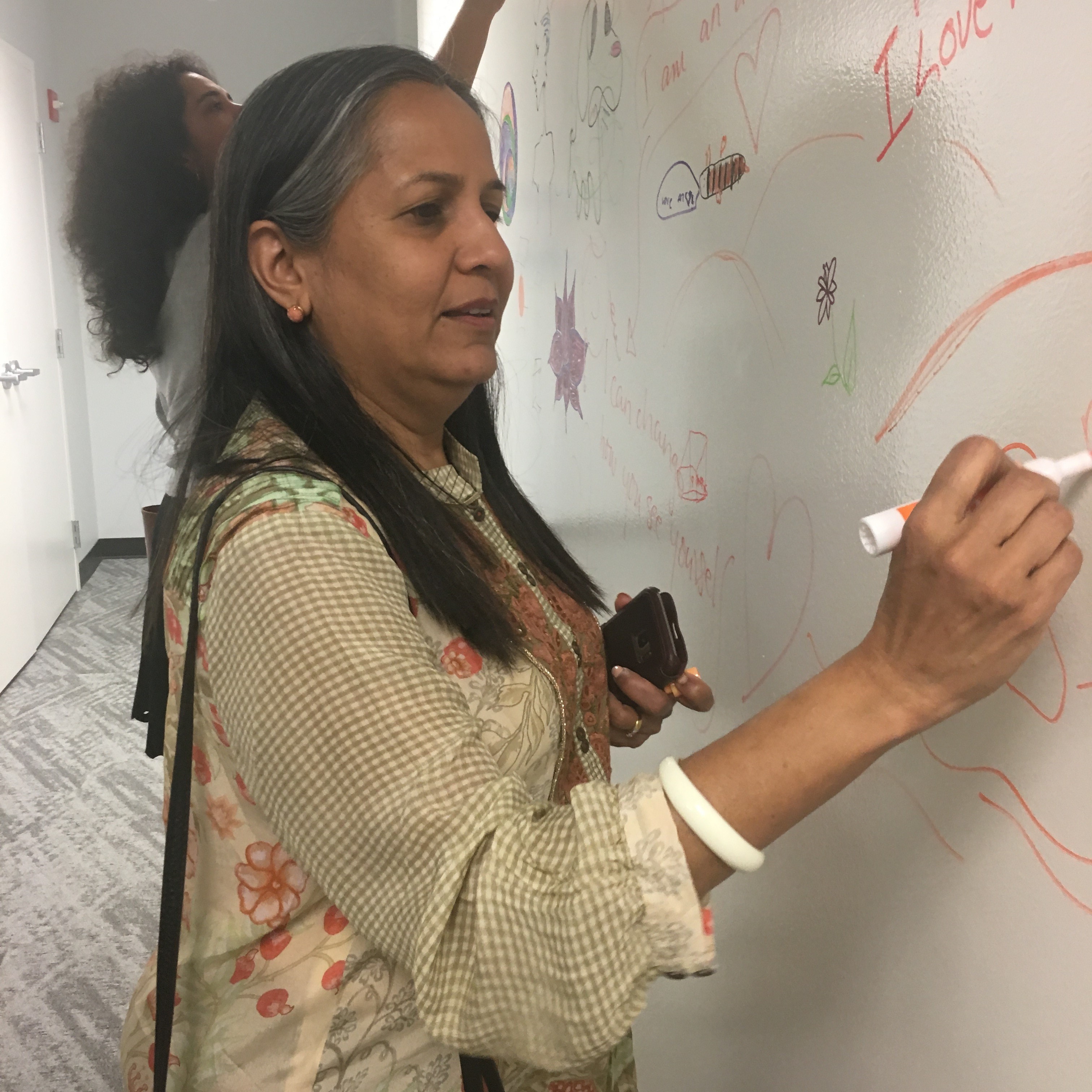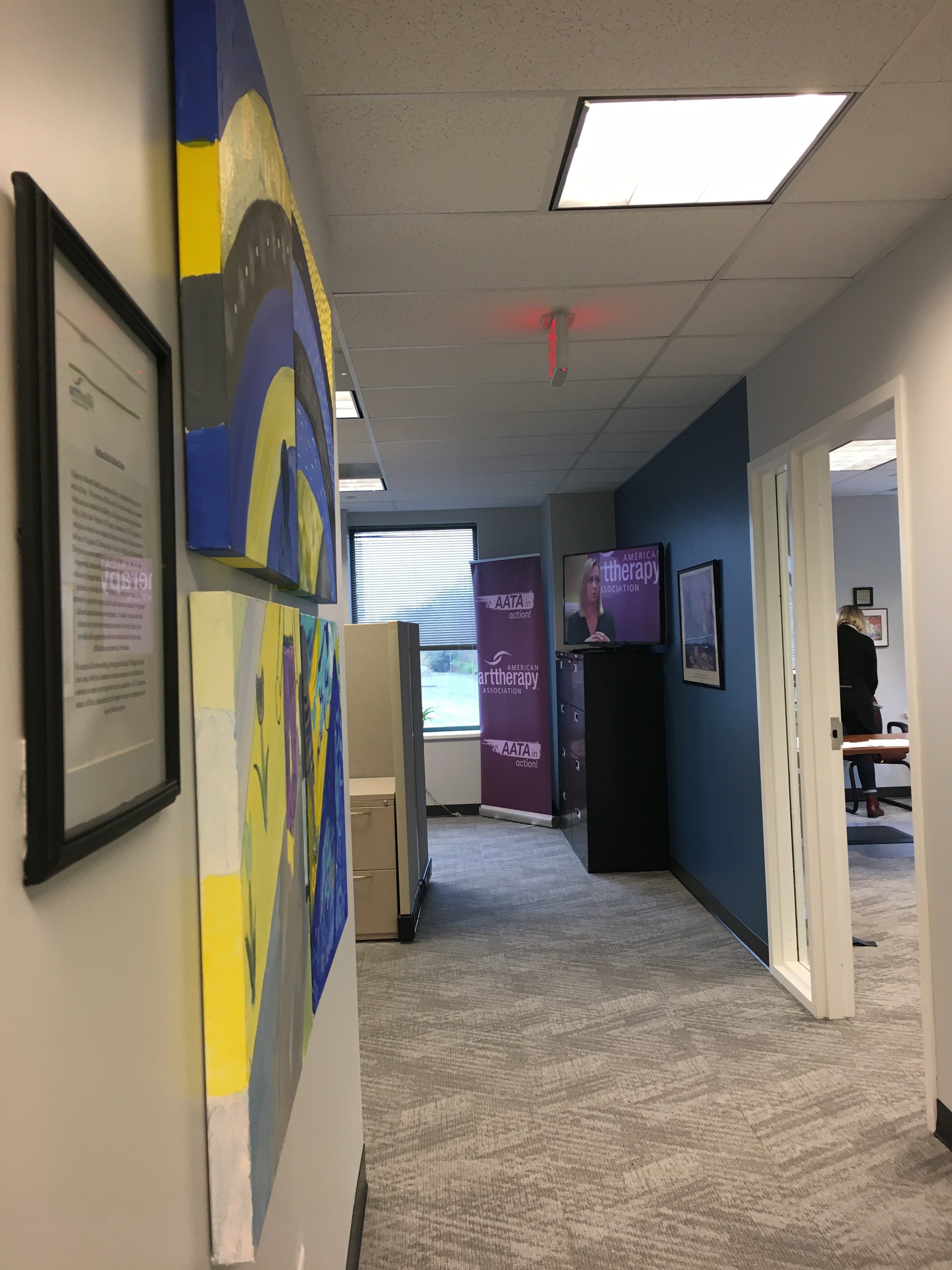October 24, 2019 | By Paula Howie, ATR-BC, LPC, LCPAT, HLM
The AATA’s presence in Washington DC has allowed the Association to foster relationships and participate in national events with organizations such as Americans for the Arts, Substance Abuse Mental Health Services Administration, and the Mental Health Liaison Group. These have in turn helped us increase public awareness, informed our legislative agenda, and amplified our voices when speaking out on national policy issues.
These are the outcomes we hoped for when the AATA board made the decision to have a “brick and mortar” presence in the Washington DC area. Important decisions are not always easy decisions. And, yes, art therapists are passionate.
When Edmund Burke, a statesman and philosopher who lived in the 1700s, said, “those who don’t know history are doomed to repeat it,” he was most likely referring to current events he was experiencing, among them the American and French revolutions. Yet, the idea holds true for art therapists, that if we do not know our roots and history, we run the risk of losing the context and relationships we build, and we may become more estranged from our roots and from each other. This can affect our ability to make difficult decisions as we go forward.
In that spirit, I want to convey both the intention and serendipity associated with the AATA’s move to the Washington DC area, a move that began twenty years ago, in 1999, and took ten years. Read AATA’s 1999 summer newsletter for more background on our decision process.
At that time, I was Secretary of the AATA, serving on Dr. Deborah Good’s Board of Directors. Our Executive Director at the time owned a management firm in Chicago, IL and the AATA was just one of the groups that his firm oversaw. There were 2-3 staff assigned to the AATA on an as-needed basis. I was not alone in wishing to modify the AATA’s national headquarters. After much consideration of alternatives to our existing management structure and location, members of the AATA’s Executive Board visited several companies. We also spoke with executive directors, some of whom, like our then management firm, had several other clients. This was a format with which members were not totally satisfied. Our last visit during this executive board trip was to the office of the American Music Therapy Association (AMTA) in downtown Silver Spring, MD. AMTA had moved from a management format like ours to an office space, close enough to DC to attend local meetings, which housed several full and part-time staff, including their Executive Director, Andrea Farbman, who was always encouraging to me. All AMTA’s staff members were dedicated to working for their association and members. After having a lively discussion of what they were able to accomplish, we were served tea and cookies in their warm, comfortable space. Later, all four members of the executive board agreed our “ideal office” would also be a self-contained space with our own committed staff in the Washington DC area.
 2006-2007 AATA Board of Directors
2006-2007 AATA Board of Directors
Several considerations made Washington, DC a compelling choice, including that it is home to a large concentration of trade and professional associations, as well as charities and philanthropic organizations. In addition, it is much easier to collaborate and have an impact with legislators, state representatives and with other national associations who are also headquartered in the DC area.
There were vocal opponents to this move, some who were loyal to our existing management and some who were concerned about whether the Association could survive the change. They questioned how much this move would cost, how it would be managed, and the necessity and wisdom of a move at that time in the AATA’s history. This debate continued until 2005.
The discussions, though passionate, remained civil. Although some were skeptical of a move, there were at least as many who were ready for a change of location and management. We disagreed, sometimes passionately; yet, we remained committed to the process of discussion, to making our ideas heard, and to finally making a decision.
Making the move: 2005-2009
Two consecutive boards, mine and Dr. Lynn Kapitan’s voted to leave our management company. The contract with the first management company we hired after making the decision fell through just two weeks before we were scheduled to move. We then used a transitional company for the short term. Due to the hard work of several board members and employees during a time of great angst, we moved to being managed by the American Counseling Association (ACA) in Alexandria, VA. The ACA managed us from 2005 into 2006, when we hired an Executive Director, Steve Kussman, with the goal of establishing a larger presence in the DC area. However, as this was a “virtual office,” we still did not have a physical presence in the DC area. Dr. Peg Dunn Snow, who became President in 2007, and her board were very much committed to expanding the office and services provided by the AATA. About a year later, the Association hired Susan Corrigan as Executive Director, and she signed our first lease on an office with our own staff in Alexandria, VA on July 1, 2009.
What the AATA is accomplishing now
Although it took 10 years to establish the AATA’s physical presence in the DC area, our momentum has continued to grow during the 10 years since, in large part due to the dedicated executive directors and staff that maintain that presence. After Susan Corrigan retired in early 2014, Cynthia Woodruff became our Executive Director. Currently the AATA has six full time employees dedicated to making members’ experiences positive ones. The AATA now occupies a newly renovated suite of offices at 4875 Eisenhower Ave, #240, Alexandria, VA 22304.
The AATA is committed to all aspects of membership concerns including career development, mentoring programs, and helping clients find art therapists to work with them. The AATA now has a state of the art online presence including information on career development, advocacy, conferences, trainings, hill day activities in collaboration with the other creative arts therapies, resources, Art Therapy: The Journal of the American Art Therapy Association, AATA research reports written by leading practitioners in the industry, continuing education, and growing career tracks and licensure guides. Art Therapy Today is a bi-monthly online publication, and there is a new open forum, MyAATA, where members can ask questions and get answers from peers.
In conclusion
The ability to passionately disagree but remain connected is still crucial today, especially in these polarized times as we continue to move forward supporting the Association’s mission. People learn, develop, and change their minds. That’s what we, as humans, do. We cannot put our standards today on what people have done in the past just because we have the advantage of hindsight. I hope the AATA continues to flourish in the coming years. Further, I hope we can all agree to be present and active even when we disagree. As we progress, my wish is that we can continue to provide services to our members and innovative interventions to our clients and be the leaders that others follow and want to emulate.
While we’re not done growing and changing, it is good to know that we now have our very own warm, comfortable, “state of the art” office, wonderful staff, and strategic location. As a matter of fact, I think I’ll head over to Alexandria soon to meet with Cynthia and the staff, to have some conversation, and to savor some coffee and cookies!
Happy 50th Birthday AATA!
Scroll through photos taken during the AATA National Office Open House in April 2019.





